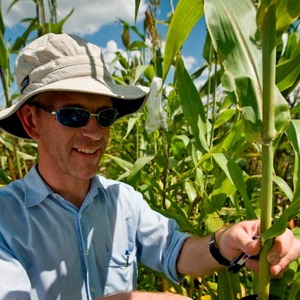Study of sweet sorghum to benefit proposed plant

Photo by Tyler Jones
May 23, 2014
BY Holly Jessen
Advertisement
Advertisement
Related Stories
Scientists at ORNL have developed a first-ever method of detecting ribonucleic acid, or RNA, inside plant cells using a technique that results in a visible fluorescent signal. The technology could help develop hardier bioenergy and food crops.
The National Corn Growers Association is calling on entrepreneurs, researchers, and startups to reimagine the potential of field corn by entering the fifth round of the Consider Corn Challenge. Applications are due June 30.
The USDA recently released its Grain Crushings and Co-Products Production report for June, reporting that corn use for fuel ethanol in April was down when compared to the previous month, but up when compared to April of last year.
The 2025 International Fuel Ethanol Workshop & Expo, held in Omaha, Nebraska, concluded with record-breaking participation and industry engagement, reinforcing its role as the largest and most influential gathering in the global ethanol sector.
The USDA maintained its forecast for 2025-’26 corn use in ethanol production in its latest World Agricultural Supply and Demand Estimates report, released June12. The outlook for season-average corn prices was also unchanged.





